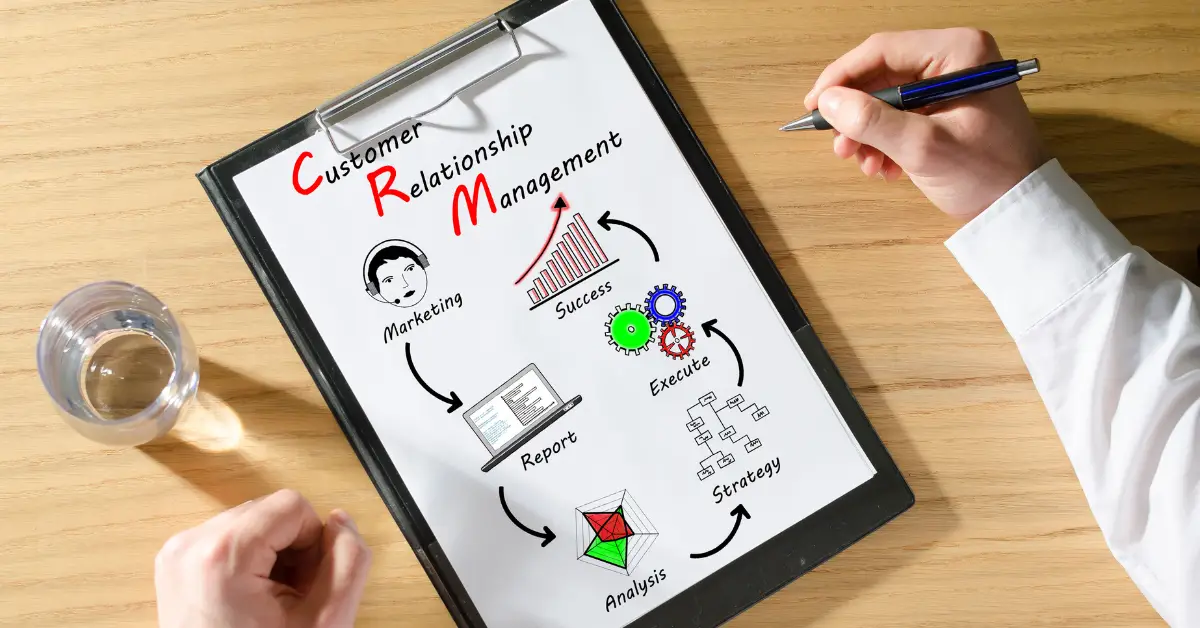Are you tired of missing out on potential sales due to disorganized data, inefficient processes, and lack of customer insights? In today’s competitive business world, having the right CRM system can make all the difference in maximizing sales and growing your business. In this comprehensive guide, we’ll cover everything you need to know about CRM systems and how to choose the right one to maximize your sales.
Table of Contents
- Introduction
- What is a CRM system?
- Benefits of using a CRM system
- Types of CRM systems
- Operational CRM
- Analytical CRM
- Collaborative CRM
- How to choose the right CRM system for your business
- Define your goals and requirements
- Consider your budget
- Evaluate the system’s features and integrations
- Look for user-friendly interfaces
- Check for mobile compatibility
- Implementation and adoption of CRM system
- Choose the right implementation method
- Train your employees
- Monitor adoption and usage
- Best practices for using a CRM system
- Keep data clean and up-to-date
- Set clear processes and workflows
- Use automation to save time and improve accuracy
- Utilize analytics to gain insights and improve performance
- Continuously monitor and optimize
- Common mistakes to avoid
- Choosing the wrong system
- Overcomplicating the system
- Not investing enough in implementation and adoption
- Neglecting data hygiene
- Not utilizing analytics
- Conclusion
- FAQs
What is a CRM system?
CRM stands for Customer Relationship Management. A CRM system is a software tool that helps businesses manage their interactions with customers and prospects. It provides a centralized database for storing and organizing customer information, such as contact details, purchase history, and communication logs. CRM systems also provide features for automating sales processes, tracking leads, and managing marketing campaigns.
Benefits of using a CRM system
Implementing a CRM system can bring numerous benefits to a business, including:
- Improved customer relationships: A CRM system allows businesses to track all customer interactions, which can help improve customer service, personalize communication, and build stronger relationships.
- Increased sales: By automating sales processes and providing insights into customer behavior, a CRM system can help businesses identify and prioritize leads, track sales progress, and improve conversion rates.
- Enhanced marketing: A CRM system can help businesses create targeted marketing campaigns by segmenting customers based on their preferences, behavior, and demographics.
- Better data management: A CRM system provides a centralized database for storing and managing customer data, which can help businesses avoid duplication, maintain data integrity, and comply with data privacy regulations.
Types of CRM systems
There are three main types of CRM systems:
Operational CRM
Operational CRM systems focus on improving the efficiency and effectiveness of customer-facing processes, such as sales, marketing, and customer service. They provide features such as contact management, lead tracking, and help desk management.
Analytical CRM
Analytical CRM systems focus on providing insights into customer behavior and preferences. They analyze customer data to identify patterns, trends, and opportunities for cross-selling and upselling.
Collaborative CRM
Collaborative CRM systems focus on improving communication and collaboration between different departments and stakeholders, such as sales, marketing, and customer service. They provide features such as shared calendars, task management, and team collaboration tools.
How to choose the right CRM system for your business
Choosing the right CRM system can be a daunting task, but it’s crucial to find one that fits your business needs and goals. Here are some key factors to consider when selecting a CRM system:
- Implementation and adoption of CRM system
Once you have selected the right CRM system for your business, the next step is to implement it effectively and ensure adoption by your employees. Here are some tips for a successful implementation:
- Choose the right implementation method: Depending on your budget, resources, and requirements, you can choose between on-premise, cloud-based, or hybrid implementations. Each has its advantages and disadvantages, so it’s essential to choose the one that best suits your needs.
- Train your employees: Proper training is crucial for the successful adoption of a CRM system. Make sure to provide comprehensive training to all employees who will be using the system, including sales representatives, customer service agents, and marketing teams.
- Monitor adoption and usage: Keep track of how your employees are using the CRM system and monitor their adoption levels. Provide feedback and support to those who may be struggling to use the system effectively.
- Best practices for using a CRM system
To maximize the benefits of your CRM system, here are some best practices to follow:
- Keep data clean and up-to-date: Regularly clean and update your customer data to ensure accuracy and avoid duplication. This will help you make better business decisions and provide better customer service.
- Set clear processes and workflows: Establish clear processes and workflows for all customer-facing activities, such as lead management, sales pipeline management, and customer service. This will help you streamline your operations and reduce errors.
- Use automation to save time and improve accuracy: Automate routine tasks, such as data entry, email follow-ups, and appointment scheduling, to save time and reduce errors. This will help you focus on more critical tasks that require human input.
- Utilize analytics to gain insights and improve performance: Use your CRM system’s analytics tools to gain insights into customer behavior, sales performance, and marketing effectiveness. This will help you make data-driven decisions and continuously improve your operations.
- Continuously monitor and optimize: Regularly monitor your CRM system’s performance, including usage, adoption, and ROI. Use this information to continuously optimize your processes and improve your outcomes.
- Common mistakes to avoid
To avoid costly mistakes when implementing and using a CRM system, here are some common pitfalls to watch out for:
- Choosing the wrong system: Failing to choose the right CRM system can lead to poor adoption, low ROI, and wasted resources. Make sure to thoroughly evaluate your options and choose the one that best suits your needs and goals.
- Overcomplicating the system: Trying to do too much with your CRM system can lead to complexity, confusion, and frustration. Keep it simple and focus on the features that will bring the most value to your business.
- Not investing enough in implementation and adoption: Implementing a CRM system is not just about buying the software. It requires proper training, support, and change management to ensure successful adoption and ROI.
- Neglecting data hygiene: Dirty data can lead to inaccurate insights, poor decision-making, and wasted resources. Make sure to regularly clean and update your customer data to maintain data integrity and accuracy.
- Not utilizing analytics: Failing to use your CRM system’s analytics tools can lead to missed opportunities and poor performance. Make sure to leverage these tools to gain insights and continuously improve your outcomes.
A CRM system can be a game-changer for businesses looking to maximize their sales and grow their customer base. By providing a centralized database, automating processes, and providing insights into customer behavior, a CRM system can help businesses improve customer relationships, increase sales, and enhance marketing. To choose the right CRM system for your business, it’s essential to define your goals, evaluate your options, and consider factors such as features, integrations, and usability.
Contact us today for your free 14 day trial and demo of our CRM system.






















